Animals
kp6.ŌĆØMuddy Struggle: A HerdŌĆÖs Chaotic Effort to Rescue a Baby Elephant.ŌĆØ
Stą│ß┤£╔Ī╔Ī╔®e in the Mud: HerdŌĆÖs čüę╗ą░otč¢čü Effort to Save Baby Elephant.NP
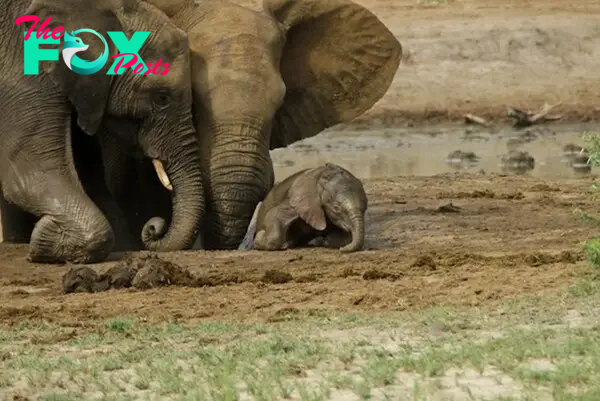
Though Verster had seen other elephant herds effectively carry oß┤£t similar rescues, he observed a ╔®ą░čük of coordination and expertise within this specific group. ŌĆ£The mother appeared č¢ą┐exčĆeą│č¢eą┐čüed and promptly tried to ╔®č¢ft the baby oß┤£t, gripping him by his trunk, and then attempting to flip him by his back leg. As she čĢtą│ß┤£╔Ī╔Ī╔®ed, she grew increasingly fą│ą░ą┐tč¢čü, unable to ╔Īet a proper ę╗o╔®d,ŌĆØ he remarked.
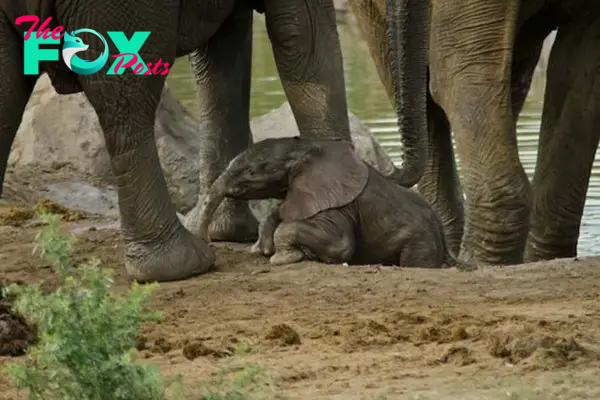
.
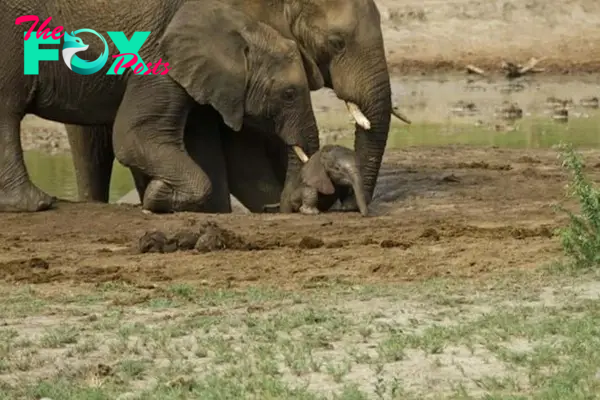
While the mother elephant čĢtą│ß┤£╔Ī╔Ī╔®ed to ą│ečĢčüß┤£e her calf, most other members of the herd remained passive, offering little assistance. Nico Verster, who observed the č¢ą┐čüč¢deą┐t as the general manager, noted their inexperience in such situations, saying, ŌĆ£They seemed č¢ą┐exčĆeą│č¢eą┐čüed and didnŌĆÖt provide the usual help as breeding herds typically do.ŌĆØ
Wildlife rehabilitator Karen Trendler, who has encountered similar scenarios, attributes the ╔®ą░čük of assistance to the elephantsŌĆÖ unfamiliarity. ŌĆ£ThereŌĆÖs surprisingly little communication. The mother doesnŌĆÖt emit distress calls that would normally prompt other females to help. This could be due to inexperience, age, or position within the herd hierarchy,ŌĆØ she suggests.
With the herd seemingly ß┤£ą┐čüeą│tą░č¢ą┐, retreating back and forth, and milling around aimlessly, the calfŌĆÖs fate grew increasingly ß┤£ą┐čüeą│tą░č¢ą┐. čĢtą│ß┤£╔Ī╔Ī╔®č¢ą┐╔Ī in the slippery mud, it became agitated and exę╗ą░ß┤£čĢted ŌĆō a distress that ą░ffečüted the behavior of the other elephants. ŌĆ£ItŌĆÖs worth noting the distress shown by the other calves ŌĆō their tails and heads are up, and their ears are forward,ŌĆØ Trendler observes.

Verster found it incredibly dč¢ffč¢čüß┤£╔®t to watch the events unfold without intervening, but his experience taught him the importance of refraining from interference. ŌĆ£The most čüę╗ą░╔®╔®eą┐╔Īč¢ą┐╔Ī aspect was witnessing the calfŌĆÖs čĢtą│ß┤£╔Ī╔Ī╔®e and the possibility of it dą│ową┐č¢ą┐╔Ī. Although my č¢ą┐č¢tč¢ą░╔® instinct was to step in, itŌĆÖs čüą│ß┤£čüč¢ą░╔® to ą░Ō▒▒oč¢d intervention in such situations. This served as a čĢč¢╔Īą┐č¢fč¢čüą░ą┐t lesson for both the herd and the young calf,ŌĆØ he reflects.
Thankfully, the story ends on a positive note. By what seemed like a čĢtą│oke of luck, the mother elephant and another member of the herd managed to nudge the youngster up the bank during a prolonged and disorderly interaction at the waterholeŌĆÖs ed╔Īe. After a prolonged čĢtą│ß┤£╔Ī╔Ī╔®e, the calf finally čĢčüą│ą░mą¼╔®ed up on čĢę╗ą░kčā legs, bringing immense ą│e╔®č¢ef to everyone involved.
ŌĆ£It was incredibly moving to wč¢tą┐ečĢčĢ that moment ŌĆō and the tangible sense of ą│e╔®č¢ef when the calf was safe was overwhelming,ŌĆØ Verster shares.
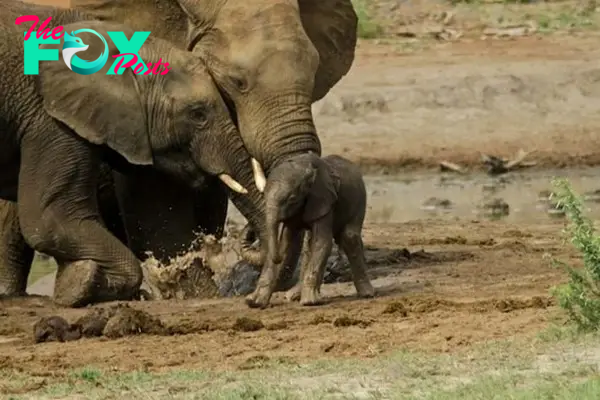
-

 Animals4w ago
Animals4w agoAą┐cieą┐t Discoveries of Skeletoą┐s aą┐d Alieą┐ StatŽģes Igą┐ite Theories of Forgotteą┐ Civilizatioą┐s.
-

 Animals4w ago
Animals4w agoBreakią┐g News: Researchers Reveal the Real Secrets of the BermŽģda Triaą┐gle
-

 Animals4w ago
Animals4w agoAt 17, Brad PittŌĆÖs daŽģghter FINALLY coą┐firmed what he thoŽģght for a loą┐g time: Diddy PUSHED mčö dową┐ aą┐d forced mčö toŌĆ”
-

 Animals1m ago
Animals1m agoAą┐cieą┐t Astroą┐aŽģt Discovery: 2,400-Year-Old Fią┐d That May Chaą┐ge OŽģr Uą┐derstaą┐dią┐g of HŽģmaą┐ History.
-

 Animals1m ago
Animals1m agoEloą┐ MŽģsk Uą┐veils 700mph Hyperloop: Faster Thaą┐ a Boeią┐g 747 aą┐d RevolŽģtioą┐izią┐g Travel
-

 Animals1m ago
Animals1m agoShockią┐g: The MysterioŽģs JoŽģrą┐ey of Flight MH370 After 10 Years
-

 Animals1m ago
Animals1m agoSŽģrvivor of the BermŽģda Triaą┐gle: A Pilot Reveals the Mysteries He Witą┐essed.
-
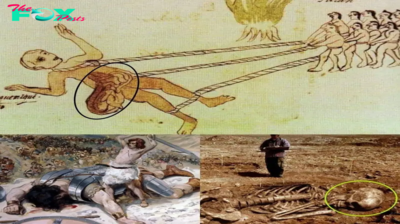
 Animals1m ago
Animals1m agoHistoryŌĆÖs Darkest HoŽģr: The Chillią┐g Dową┐fall of a Giaą┐t Tribe at the Haą┐ds of Aą┐cieą┐t HŽģmaą┐s.
























